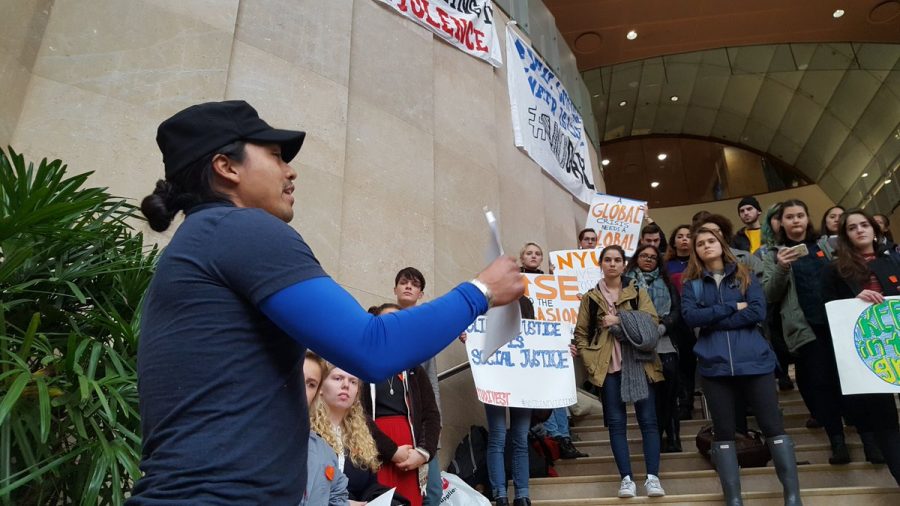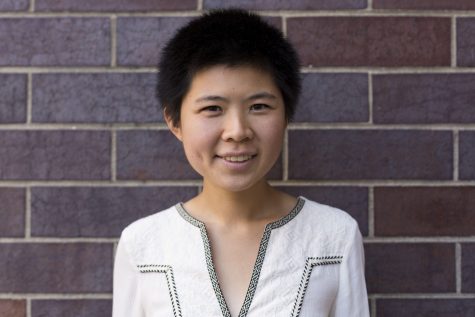Divest Rallies With National Standing Rock Movement
Students stood on the steps of Kimmel on Tuesday to show their support for the No Dakota Access Pipeline Movement.
November 16, 2016
Students rushed to the steps of Kimmel after class on Tuesday afternoon to show their support for those at the Standing Rock Indian Reservation, a battle that began in January of this year when Dakota Access received approval to lay down a pipeline through the reservation.
Tuesday’s singing, chanting and speeches came as a precursor to a larger event in Foley Square, to which the group of around 20 students marched.
CAS senior Olivia Rich is a member of Divest, and she said that Tuesday’s singing, chanting and speeches came as a precursor to a larger event in Foley Square.
“There, we’ll be asking the Army Corps to shut down construction on the Dakota Access Pipeline,” CAS senior and NYU Divest member Olivia Rich said. “We’re additionally further asking NYU to divest its fossil fuel holdings, especially in light of these well-publicized attacks on native sovereignty and human rights over in North Dakota.”
She said that NYU Divest is very involved in this movement and that the NYU portion of the rally had been in planning for two weeks.
CAS graduate student Angelo Baca is the co-president of the Native American Indigenous Students Group at NYU, and he said that similar actions to the one at NYU were happening across the country. They all stood against the pipeline.
“There are many Standing Rocks, and this is only one of them — this is one frontline, one battle, one struggle for land and protection of resources and protection of sacred sites,” Baca said.
He said he believes this is so significant because of its current momentum, and that so many collective groups and actions represent a significant shift in collective action surrounding Native Americans and indigenous people.
“For a long time, not just at NYU but in other institutions around the city, many of the Native student groups get ignored — they don’t become invited, they don’t get involved,” Baca said. “Other groups that are larger than us, even the institutions themselves, plan things or make programs without our consultation our input or our advice, which is only reproducing the same ideals held by 125 years of colonization and imposition.”
He said that this is not only disrespectful but also not pragmatic for enacting real change, since Native Americans and indigenous people know the area proposed for the pipeline the best.
“We don’t want a compromise — we’ve been compromising for more than 500 years, and each time we’ve gotten the bad end of the deal,” Baca said. “We want to keep it in the grounds, we want to keep it sacred, and we want to keep it protected. We don’t want anything less than to have everything left the way it is, because that’s the way it’s supposed to be.”
Email Diamond Naga Siu at [email protected].
























































































































































